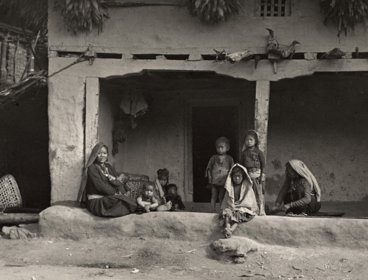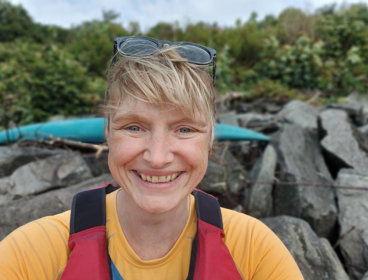The Society is delighted to be sharing digitised materials from our Collections with school children and researchers on Mangareva in the Gambier Islands, French Polynesia.
As part of our rich Collections, we hold research materials by anthropologist and historian Katherine Routledge, gathered as part of her expeditions in the Pacific in the 1910s. In addition to her more famous expedition to Rapa Nui from 1913-1916, Routledge also visited Mangareva in 1921. Trained at the University of Oxford, Routledge was interested in the culture and language of the island’s people, collecting vocabularies, folk tales, stories, songs, chants and myths, and preserving translations of the Mangarevan Central Polynesian dialect.
These notes now reside in the Society’s Collections alongside much of Routledge’s archives, and were included in the recent Wiley Digital Archives project to digitise hundreds of thousands of items from our Collections. There are over a thousand images of great interest to those researching the history, languages and culture of Mangareva.
We have worked closely on this initiative with Albert Hugues, a Mangarevan researcher, and Dr James Flexner of the University of Sydney as part of his four-year Australian Research Council Future Fellowship (grant number FT210100244) on archaeologies of community and colonialism in Oceania. During ongoing fieldwork in Mangareva, James presented digital copies of Routledge’s materials to the local high school. These will be held in perpetuity at the school for the benefit of students and researchers on the island.
Katherine Routledge’s documents will be analysed and compared with other primary sources by Albert Hugues for his PhD research at the University of French Polynesia on te reo magareva (Mangarevan language). The Mangarevan cultural association Te Ana Pouga Magareva, ‘the cave of Mangarevan customs’, chaired by Albert Hugues, has thanked James Flexner and the Society for reconnecting the Mangarevan community with the Routledge documents.
The initiative is just one example of how digital repatriation of historical materials can enhance local knowledge and research into the past. For more information, please contact rhed@rgs.org.



